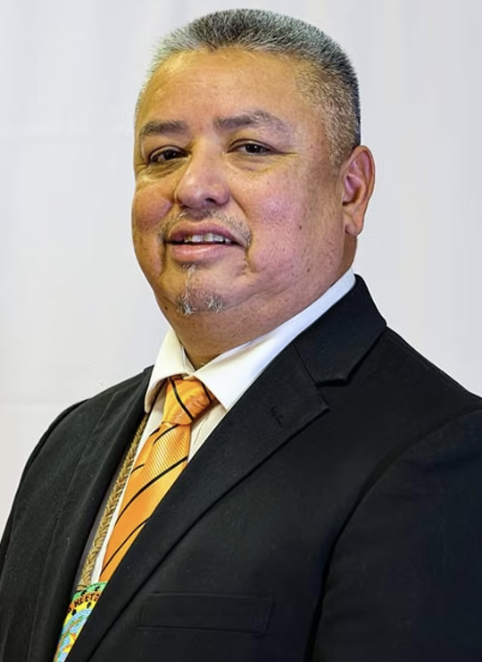Guest Opinion. As chief of the United Keetoowah Band of Cherokee Indians (UKB), I know what it means to fight to protect our land and defend our sovereignty. We have fought for jurisdiction over our own reservation, for federal approval of trust lands to host programs and deliver services Members, and for our right to game on our own lands, all to provide for our people on our terms. And we are fighting still, every day.

Now we are being forced to fight against a shocking and shameful federal legislative provision, proposed in secret by U.S. Sen. Markwayne Mullin (R-OK), who is a tribal citizen of the Cherokee Nation of Oklahoma (CNO), at the behest of his tribe, would terminate the UKB’s right to trust land and basic economic development rights within the Cherokee reservation that we share with the CNO in Northeastern Oklahoma.
This is not a policy disagreement; it is a deliberate, targeted act of tribal termination. The draft language is a blatant betrayal of the U.S. government's trust responsibility, a violation of federal law, and an attack on tribal sovereignty.
Let us be clear: the UKB’s existence and governmental status are not subordinate to the political objectives of any other tribe. The CNO’s argument, which claims this provision is necessary to “protect the integrity of the reservation” or “avoid confusion in jurisdiction,” is a thinly veiled attempt to consolidate power and control over shared lands, while undermining the sovereignty of a federally recognized Cherokee tribe. There is no legitimate reason for Congress to consider a policy that would erase the UKB’s right to place land into trust – a right that is foundational to our future and our ability to provide for our Members.
The UKB’s federal rights are not theoretical. They are rooted in the treaties of the United States, enshrined in federal statute, and reaffirmed repeatedly by the Department of the Interior, the courts, and the U.S. Congress. UKB is a sovereign government with a constitution, a functioning court system, elected leadership, and 15,000 tribal members passing a blood quantum requirement, most of whom live in Northeastern Oklahoma. The CNO is pushing a legislative provision that would extinguish another tribe’s rights sets a dangerous precedent all with complicity from our own United States Senator.
Access to trust land is not merely a technical legal issue – it is the cornerstone of our economic empowerment. It means our ability to build homes, foster businesses, and create opportunities for our Members. It means the freedom to honor our traditions and invest in our future. To suggest that the UKB’s exercise of these rights would “undermine the reservation” is not only unfounded, but also deeply insulting. Our record is clear: we have been responsible stewards of our lands and productive neighbors. The UKB’s pursuit of economic development has never posed a threat to the CNO – indeed, we are both stronger when all Cherokee people can prosper.
The CNO’s legislative maneuver does not serve the broader Cherokee people; it divides us. It is an attempt to achieve through legislation what could not be justified in the courts or through good faith negotiation. The UKB will not stand idly while our rights are threatened. We will defend our sovereignty, our land, and our future – for ourselves, for our children, and for the next generations.
I urge Congress, our federal partners, and the citizens of Indian Country to see this provision for what it is: an attack on the sovereignty and future of the United Keetoowah Band. We are not asking for more than our due – we are asking for the respect, recognition, and rights that are our birthright as Cherokee people.
Jeff Wacoche is chief of the United Keetoowah Band of Cherokee Indians.
Help us defend tribal sovereignty.
At Native News Online, our mission is rooted in telling the stories that strengthen sovereignty and uplift Indigenous voices — not just at year’s end, but every single day.
Because of your generosity last year, we were able to keep our reporters on the ground in tribal communities, at national gatherings and in the halls of Congress — covering the issues that matter most to Indian Country: sovereignty, culture, education, health and economic opportunity.
That support sustained us through a tough year in 2025. Now, as we look to the year ahead, we need your help right now to ensure warrior journalism remains strong — reporting that defends tribal sovereignty, amplifies Native truth, and holds power accountable.
 The stakes couldn't be higher. Your support keeps Native voices heard, Native stories told and Native sovereignty defended.
The stakes couldn't be higher. Your support keeps Native voices heard, Native stories told and Native sovereignty defended.
Stand with Warrior Journalism today.
Levi Rickert (Potawatomi), Editor & Publisher

